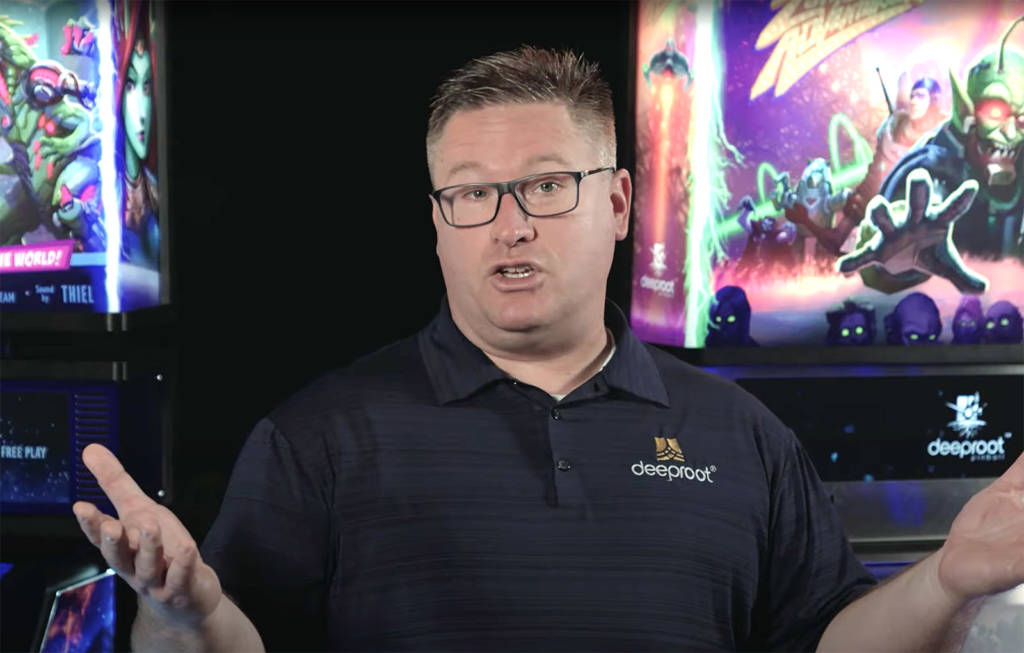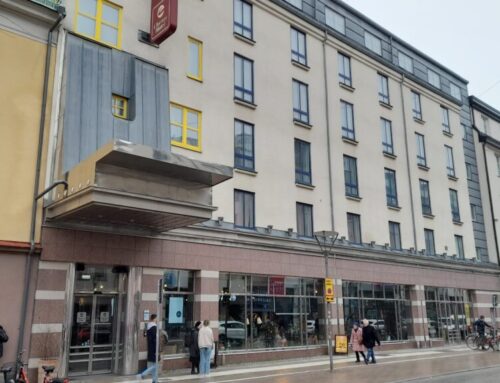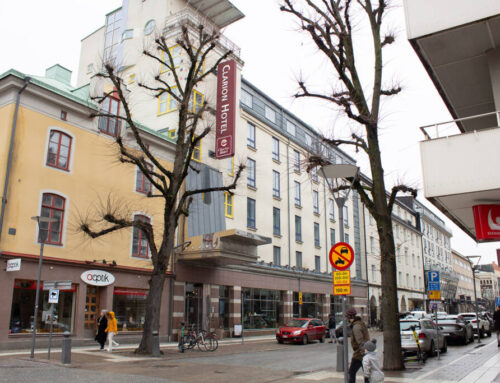It could be ‘Game Over’ for Deeproot Pinball after the company’s founder and “Principal & Architect of all things deeproot Pinball”, Robert Mueller, was charged by the Securities and Exchange Commission (SEC) with fraud in relation to the two investment funds which funded the company.
Deeproot Pinball was the sole subsidiary of Deeproot Tech, a technology company funded by two investment funds – the deeproot 575 Fund LLC (575 fund) and the deeproot Growth Runs Deep Fund LLC (dGRD fund) – through another of Robert Mueller’s companies, Relief Defendants.
The 575 fund received investment of $46,175,546 from 215 investors between September 2015 and February 2021. The 575 fund was so called because it promised either a 5% annual return paid monthly, or a 7% annual return paid at the end of the 5 year lock-in period.
The dGRD fund received $12,614,213 from 81 investors over the same period. This fund promised a more complex return based on a number of factors to be paid at an unspecified time.
Between them, the two funds received a total of $58,789,759 in investor deposits, mostly coming from retirees who had cashed in their annuities and personal retirement accounts.
The 575 fund was supposed to invest more than 50% of its money in life insurance policies. The SEC claims any life insurance policies it did invest in were through the dGRD fund, which itself bought life insurance policies through another company run by Robert Mueller, Defendant Policy Services (Policy Services).
The SEC also claims that the monies from the 575 fund and the dGRD fund were combined along with that from Policy Services, and that in fact less than 10% was actually spent on life insurance policies, and any spending that did happen took place before September 2017, despite raising more than $43 million for those funds after that point.
The details of how the monies were invested might be troubling to investors, but it is what happened to the rest that is of potentially greater concern.
According to the SEC, Robert “used the vast majority of the Funds’ assets – virtually all of which came from investors in the 575 Fund and the dGRD Fund – like a piggy bank to fund Mueller’s deeproot-affiliated businesses, the Relief Defendants. Indeed, Mueller funneled more than $30 million of the Funds’ assets to the Relief Defendants in non-arms-length transactions whenever he determined the Relief Defendant businesses had expenses that needed to be paid, and he did so without any analysis as to whether such transfers constituted suitable investments for his client Funds.“
The SEC continues, claiming nothing of substance was obtained in return for the more than $30 million spent, and no records were kept of how the money was allocated. Less than $1.9 million of income was generated from investments, yet more than $2.8m was paid in interest to 575 fund investors. The SEC claims deposit money from later investors was being used to pay earlier investors, in what it describes as “Ponzi-like“, and when that ran out he started borrowing money to pay investors using the funds as collateral. When that too ran out, the SEC say he wrote to certain 575 fund investors blaming Covid for missing their monthly interest payments.
Additionally, the SEC’s filing claims Robert used investor money like his personal bank account to, “pay hundreds of personal expenses, including his daughter’s private school tuition, vacations with his family, his second wedding, his second divorce, his third wedding, jewellery for both his second and third wives (including engagement rings and wedding bands for both wives), other lifestyle spending for and by his family, and to buy a condominium in Kauai, Hawaii.“
As a result, the SEC’s prosecution claims, “Mueller and deeproot, both investment advisers, directly or indirectly employed a device, scheme, or artifice to defraud clients or prospective clients; engaged in transactions, practices, or courses of business which operated as a fraud or deceit upon clients or prospective clients; and otherwise engaged in acts, practices, or a course of business which were fraudulent, deceptive, or manipulative.“
The SEC’s prosecution is a civil case, meaning any conviction can only result in relatively modest financial penalties, but they are also seeking to prevent recurrence of the claimed abuses while also demanding the repayment of any money spent on personal expenditure or otherwise not in accordance with the rules of the funds, and the prevention of Robert offering to sell securities to investors in the future.
However, a conviction could also open up the possibility of a criminal prosecution, as well as additional civil litigation from investors or others who believe they have a financial claim.
This move by the SEC is likely to be just the start, but if successful it will probably lead to the recovery or liquidation of any assets which were purchased or created with investor money from the 575 fund and the dGRD fund.
There are many more details of the allegations in the SEC’s complaint (PDF) and you can read a summary of the SEC’s case here which calls it an ‘Investment Scam’, but for Deeproot Pinball the immediate result, if the SEC gets the injunction for which it has applied to the court, appears to be that the pinball company’s funding would be cut-off.
That would stop any outstanding payments to employees or suppliers along with ongoing payments such as office rental, making completion of the Retro Atomic Zombie Adventureland game highly unlikely, making all the employees redundant and putting all deposits and pre-payments in peril as the buyers join the list of unsecured creditors.
How Deeproot Pinball could be financially viable was always puzzling. With huge on-going expenses, no product shipped, and little interest in their first title, the flow of money always seemed to be going one way with little prospect of turning the finances around in the short-to-medium term.
Robert had previously claimed that he was funding Deeproot Pinball with his own money. If the SEC’s claims are to be believed, he had a pretty relaxed attitude to what money was “his” to spend.
You can hear Roberts last interview about Deeproot Pinball in a special bonus edition of the Pinball News and Pinball Magazine PINcast from December 2020.
Pinball News will continue to report on the events surrounding Deeproot Pinball and the progress of the SECs case against Robert Mueller and the Deeproot group of companies.






